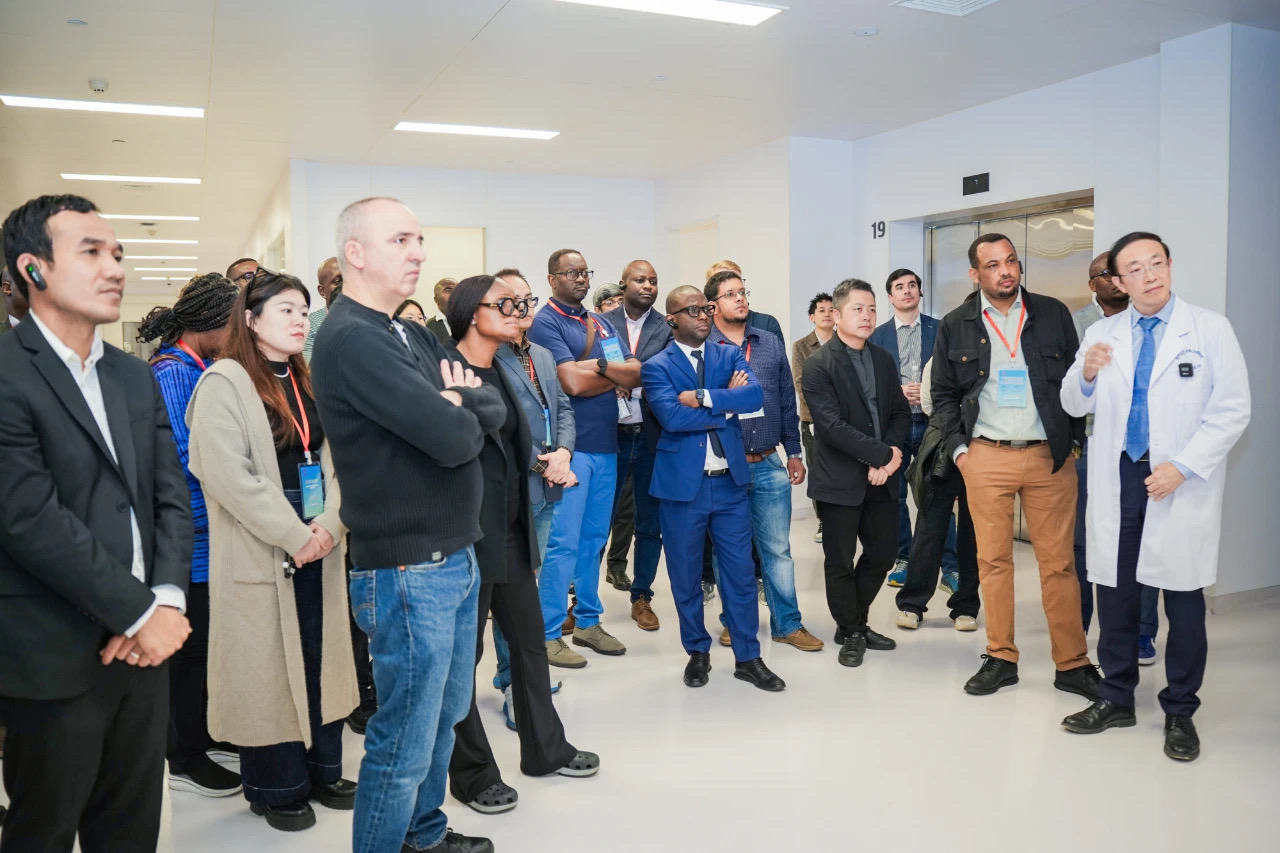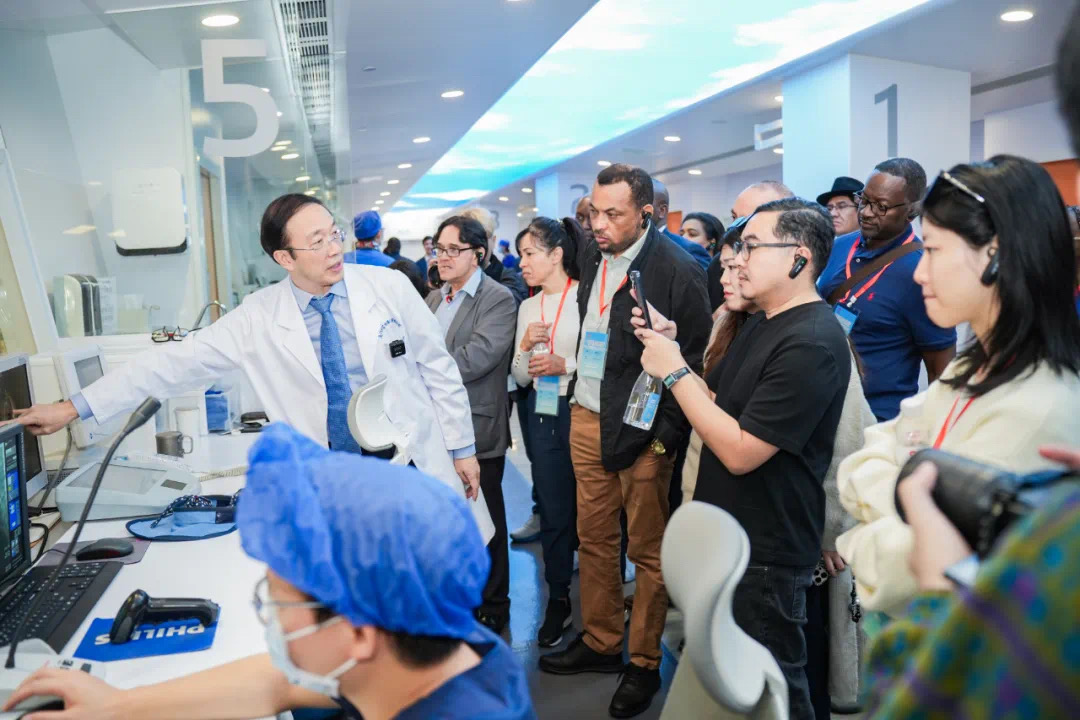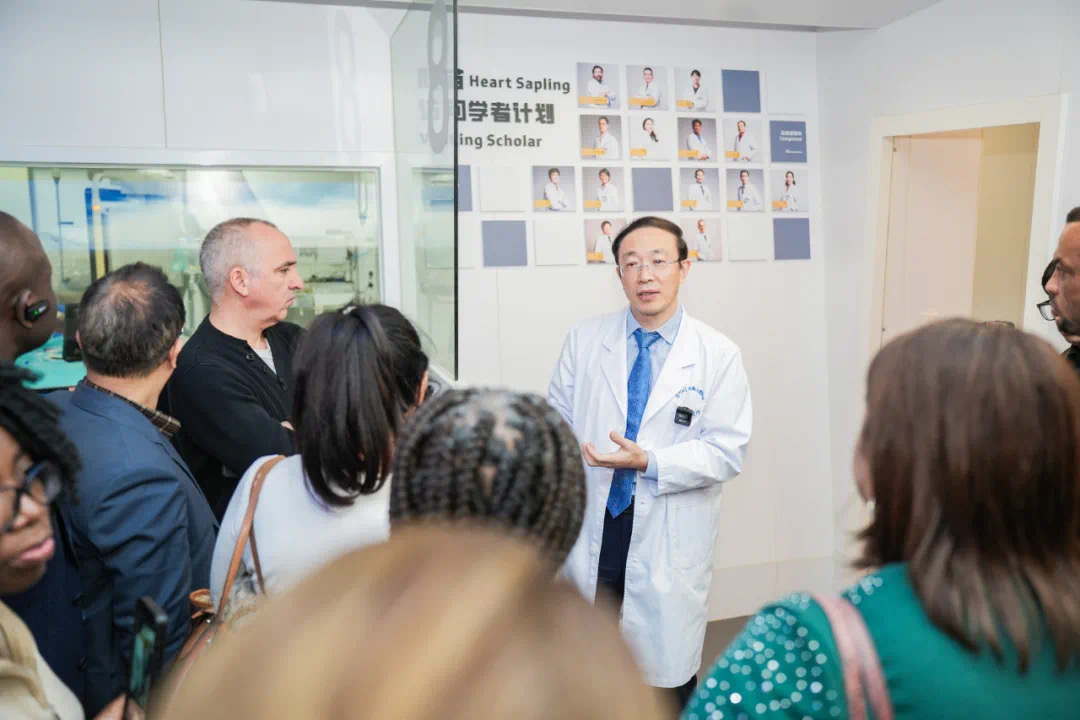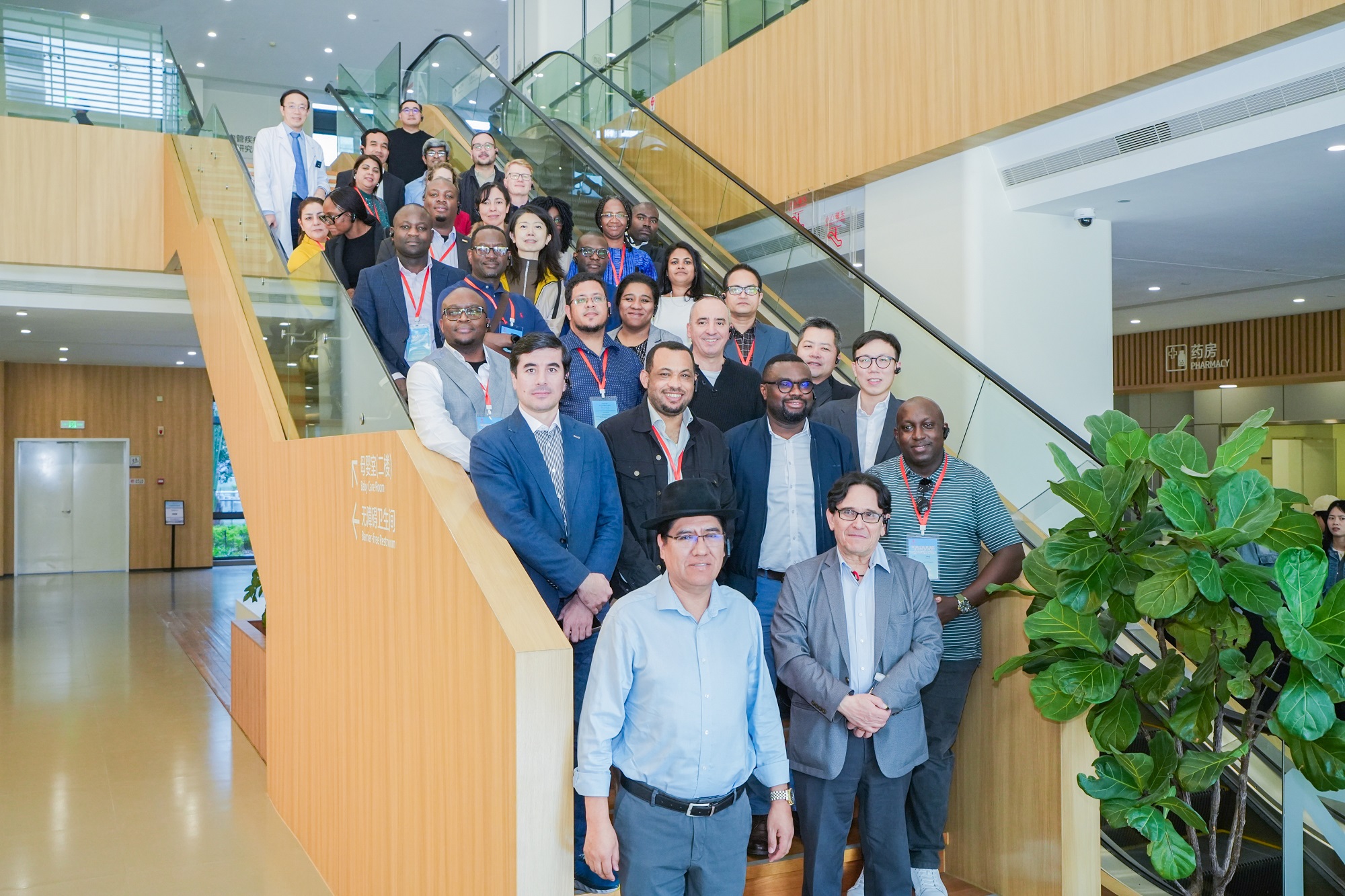UN Delegation from 29 Countries Visits XMCH
17 December,2024
On the afternoon of December 12, 2024, 31 senior-level diplomats from 29 countries, representing the "Friends of the Global Development Initiative Group," visited Xiamen for an exchange program as part of the "China Practice Training Series of United Nations Sustainable Development: Workshop on New Industrialization and New Quality Productive Forces". Their first stop in Xiamen was Xiamen Cardiovascular Hospital Xiamen University(hereinafter referred to as "XMCH").

During the visit, Professor Wang Yan, Vice Chairman of the Xiamen Political Consultative Conference and President of XMCH, warmly welcomed the delegation. He led the participants on a tour of several key departments and specialized treatment centers of the hospital, providing detailed information about the hospital's design philosophy, functional layout, medical technology, scientific innovation, and emergency response systems. At the Interventional Treatment Center, President Wang showcased the hospital's use of internationally advanced interventional techniques for precise, minimally invasive cardiovascular surgeries, highlighting the hospital’s exploration and achievements in scientific innovation and international development. The hospital's state-of-the-art surgical equipment, expert operation techniques, rigorous medical procedures, and internationally standard medical environment left the participants highly impressed. Additionally, President Wang introduced the Heart Sapling Visiting Scholar Program and extended an invitation to outstanding cardiovascular specialists from various countries to come to Xiamen for training and exchanges.


The participants highly praised XMCH’s efforts and achievements in the field of cardiovascular health. They expressed that cardiovascular diseases, as a major global public health challenge, require cooperative efforts from all countries to address. The hospital's successful practices in the prevention and treatment of cardiovascular diseases provide a replicable and scalable model for other countries and regions. Both sides also engaged in positive discussions on future cooperation, expressing intentions to collaborate on promoting cardiovascular disease prevention and treatment technologies, medical personnel training and exchanges, and scientific research projects.

share
Latest News
-
01 December,2025
Heart Saplings Blossom| Fellows from India and Indonesia Win Awards at International Academic Conferences with Cases from XMCH
-
03 November,2025
“Made-in-China” Robot Performs Cross-Continental Heart Intervention, Achieving a World First in Remote Operations
-
09 October,2025
Accelerating Technology Export | Xiamen experts conduct academic exchanges and demonstrate domestic IVL procedure in multiple hospitals in Pakistan

